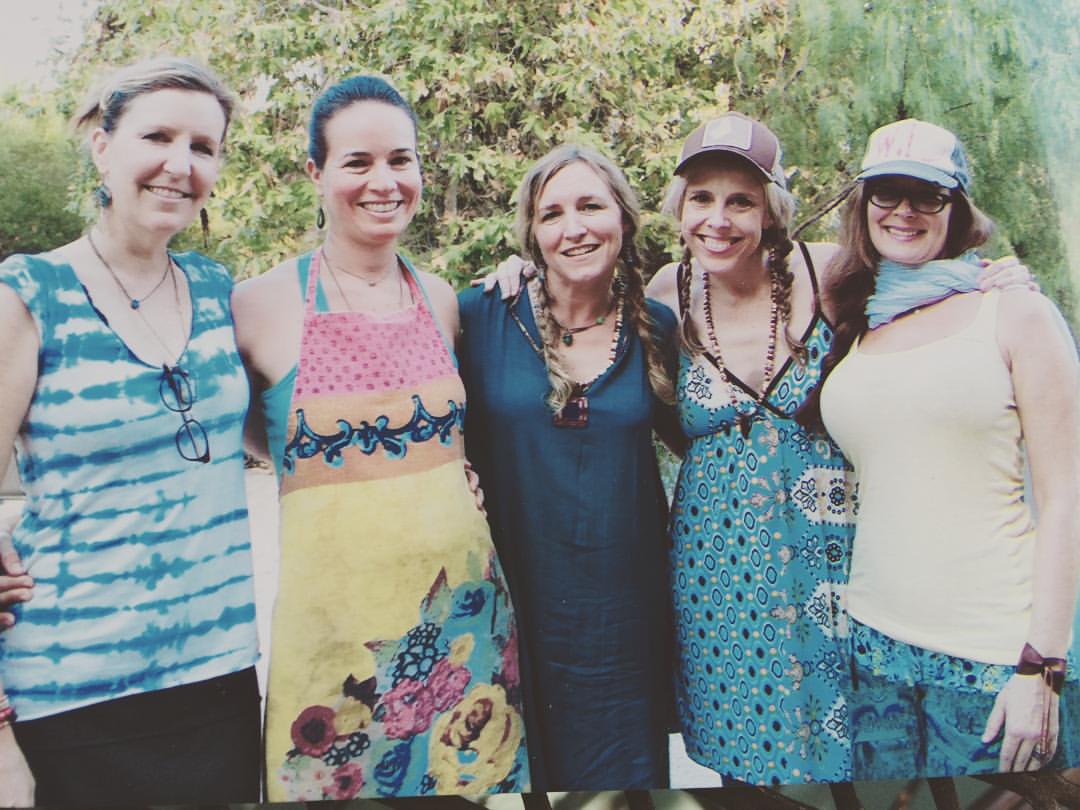This week, I am reminded of how I ended up with this once-upon-a-time-fairy-tale kind of life that I now find myself living. Spending a week cooking for an exquisite women’s retreat helped me to reflect how my intentions have come full circle, and how the seed for this whole business began.
My first retreat experience ever was about a decade ago, when on a whim I attended a women’s retreat that I learned of rather serendipitously. That first gathering was magical in so many ways – the deep connection of sisterhood, the outdoor shower under the stars, the towering redwoods that held space for us. Every aspect of the retreat was so perfect, except one – the food. It was tragic to me that in a setting where so much attention had been dedicated to the schedule and execution of events, food was seemingly considered an afterthought. With no dedicated chef present, the retreat assistants would scurry into the kitchen between activities and heat up an array of packaged Trader Joe’s foods that were uninspiring and in no way contributing to the transformational work that was unfolding that week. Dinners of pasta with canned sauce and iceberg lettuce salad were a total bummer after deep heart-bursting sharings each afternoon.
My practice at that retreat became one of gratitude, learning to accept each meal without judgment or expectation. I can’t say I always succeeded. At the end of the retreat, I provided feedback to the organizers about the quality of the food and how it seemed to me that meals were a missed opportunity to foster the inner blooming that was taking place in our circle.
Two months following that retreat, I made the leap to ditch my sociology PhD program, with nothing more than a vague intention to somehow dedicate my livelihood to something to do with food and yoga.
Within a few weeks, I’d met someone in need of a chef for day retreats in Sonoma County. As soon as I heard the word retreat, I remember a big inner resounding YES pulsating through every cell of my being. From the first humble retreat lunch I prepared, to the multi-day extravaganzas I’ve been part of in all corners of the world, nothing excites me more and lets me feel more purposeful than providing food to support inner transformation.
Showing up to a retreat, no matter the theme or setting, is always an act of courage. It’s normal for retreatants to arrive with at least some degree of anxiety or uncertainty. The quality of a meal can help ground participants, help them to feel safe and like they’ve fully arrived. Each meal at a retreat is an opportunity to support the deeper transformative process that is unfolding on the mat or in circle. I am forever grateful for the science of Ayurveda and her wisdom, which empowers me to create menus that nurture retreat participants both physically and more subtly.
I am blessed that so many groups each year trust me to provide the gift of nourishment for them, and contribute to the their collective transformation in this way.
This evening, someone asked me if I ever get tired of hearing how much my food is appreciated. I had to say no, because every compliment is a reminder that I am living my purpose, in action.
I’m grateful to the women of Wild Roots Sacred Wings for holding the space for me to remember how I got here, and to feel my purpose perfectly fulfilled. Thank you for letting me nourish you – you nourished me on so many levels as well. <3





